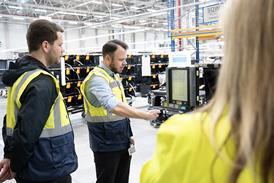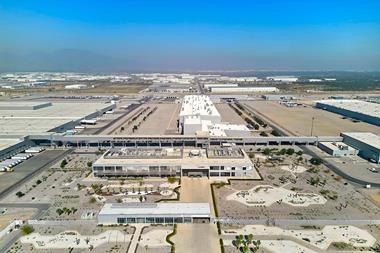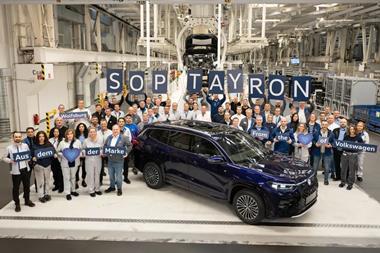 Germany – The first 30 recruits arrived at the plant in 1916, since when almost 11,000 young people have received vocational training onsite. Daimler says there are currently 380 trainees in nine disciplines and on three dual-study courses.
Germany – The first 30 recruits arrived at the plant in 1916, since when almost 11,000 young people have received vocational training onsite. Daimler says there are currently 380 trainees in nine disciplines and on three dual-study courses.
Describing robust vocational training as “the basis for our corporate success”, Marcus Nicolai, head of Production at Daimler Buses, commented: “In Mannheim we have been offering young people an ideal start to their careers for a century. As specialists of tomorrow, their in-depth training will help us to continue our success story here at the site in the future, too.”
A training workshop was established in Mannheim at Benz & Cie in March 1916, where full-time trainers guided 30 apprentices along their career paths as upholsterers, wainwrights, locksmiths and lathe operators. The recruits learned from replica vehicles and engines, as well as attending a local vocational school for two half-days per week.
Commercial vocational training began in 1953 and by the time Mannheim reached a half-century of training, almost 2,800 individuals had completed their courses. Female students were admitted in 1978, specialising in electronics and upholstery. In the same year, Daimler introduced training opportunities for young people with learning difficulties. Since 1995, apprentices for Mercedes-Benz and EvoBus, also a Daimler subsidiary, have shared the training facilities at Mannheim.
The following vocational training positions are now offered: foundry mechanic; machine moulding specialist; production mechanic; vehicle mechatronics technician; industrial mechanics specialist; technical model-maker; milling machine operator; electronics technician for automation technology; and warehouse logistics operator. The dual-study programmes are: Bachelor of Engineering/Mechanical Engineering; Bachelor of Engineering/Mechatronics; and Bachelor of Science/Business Information Systems.
Recruits also benefit from the DAS@web online learning platform which enables course materials to be accessed remotely at any time and supports trainee networking between production sites.
“Especially in times of digitalisation, skilled work is also the foundation of economic success of the company. The vocational training in Mannheim is prepared for that,” stated Joachim Horner, chairman of the Works Council, Mercedes-Benz Mannheim Plant.
Earlier this month, Daimler also announced the success of its internship integration programme for refugees, which began in November 2015 and will encompass 300 individuals in the first six months. The OEM says that nearly all of the first 40 interns will receive industry placements from temporary employment agencies, or vocational training at Daimler.


































